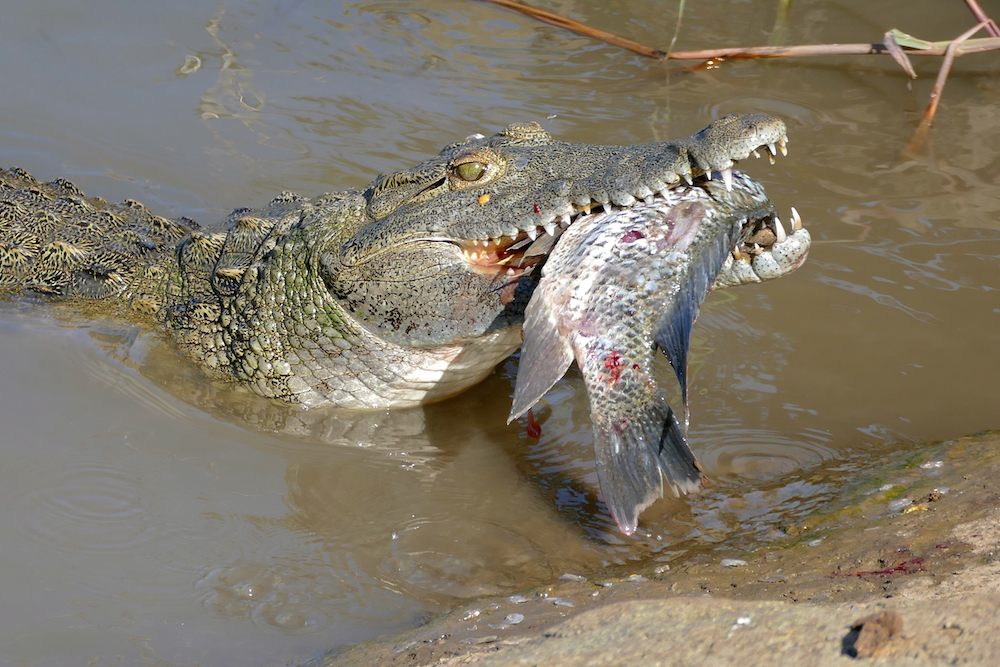Found: Large And Deadly Nile Crocodiles, Now in Florida
They’re a little terrifying.

These guys get big, and they will bite you. (Photo: Bernard Gagnon/CC BY-SA 3.0)
Florida has crocodiles, but they are American crocodiles. The kind of crocodiles that look a little bit evil and, yeah, you probably don’t want to get too close to its mouth. But they won’t kill you. Nile crocodiles, native to Africa, will. They can grow to 16 feet long, and they’re responsible for about 200 deaths each year in sub-Saharan Africa. Now, of course, they are in Florida.
A group of Florida herpetologists started collecting “unusual looking crocodilians” a few years back, based on reports from the public. One hatchling was found on a porch; two larger crocodiles were found in Homestead, an area south of Miami and on one of the main roads leading to the Everglades. Those second two were related to each other; probably the first one was, too, although problems with the DNA samples kept the scientists from saying so definitively. In a newly published study, they identified the crocodiles as Nile crocodiles.
How did these crocs get to Florida? They’re imported for use in animal attractions; the Orlando Sentinel notes that these Nile crocodiles are not related to those at Disney’s Animal Kingdom. More likely, they were brought in for pet trade or a less carefully run operation. Still, “We don’t really know how they got into the wild,” one of the herpetologists told the Sentinel.
If these Nile crocodiles start living in the Florida wilds, though, they could create real problems, for humans and for other crocodiles. They’re more dangerous to us; they also may outcompete native crocs. Or, it’s possible they’ll hybridize. The Everglades National Park, where the third crocodile was ultimately captured, says there aren’t other Nile crocodiles in the park. But the scientists think there are probably more out there somewhere.
That’s cool, we’re not worried at all about invasive killer crocodiles…

This one isn’t fully grown. Imagine the fish is you. (Photo: Bernard Dupont/CC BY 2.0)
Bonus finds: Plants with teeth
Every day, we highlight one newly found object, curiosity or wonder. Discover something amazing? Tell us about it! Send your finds to [email protected].















Follow us on Twitter to get the latest on the world's hidden wonders.
Like us on Facebook to get the latest on the world's hidden wonders.
Follow us on Twitter Like us on Facebook